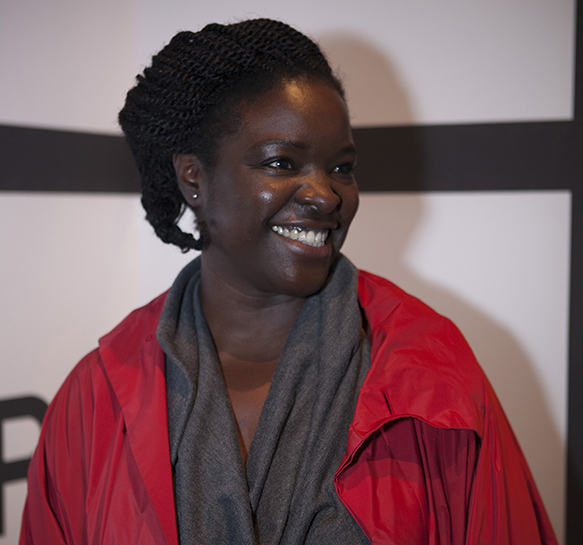Art as an alibi in Caderno Sesc_Videobrasil 10
"Many contemporary artists defy the claim of history’s truthfulness or completeness, and claim art as an exercise in memory construction and/or retrieval that aims to reformulate historical representation,” relates Elvira Dyangani Ose, curator of the 8th Göteborg International Biennial for Contemporary Art and editor of Caderno Sesc_Videobrasil 10: Uses of Memory, which will be launched on February 5, in São Paulo. For the publication, she has compiled seven essays and artistic propositions by some of the foremost artists and researchers from African and diaspora countries. To all of the guest collaborators on this publication, “art provides them with an alibi to claim from an individual perspective the narration of a collective memory,” the editor writes in the introductory text that lends its title to Caderno, Uses of Memory.

Elvira Dyangani Ose invited eight collaborators who address the scenario of massive decolonization in Africa between the decades of 1950 and 1970 to take part in Caderno 10. Their texts or artistic propositions ponder on archives and history as the focus of art and on the latter’s connection with the building or retrieval of memory to reformulate historical representations. She mentions that the reason why she accepted the invitation to be guest-editor of this edition of Caderno Sesc_Videobrasil – and which also influenced the choice of its theme – was Achille Mbembe’s definition of “archive” (Mbembe had previously collaborated in Caderno Sesc_Videobrasil 9: Geographies in Motion). The archive, Mbembe writes, “is not a piece of data, but a status … first of all a material status … because of its being there, the archive becomes something that does away with doubt…. It is proof that a life truly existed…. The final destination of the archive is therefore always situated outside its own materiality, in the story it makes possible.”
According to Elvira Dyangani Ose, "this focus both resonates with my ongoing research into the philosophical foundations of the modern museum and the postcolonial archive, and is also based on a long-pursued interest that I have in history making.”
Elvira Dyangani Ose is a visual culture professor at the Goldsmiths University of London. She was also the international curator for London’s Tate Modern from 2011 to 2014, and played a key role in incrementing the museum’s African and black diaspora collection. Her research corroborates and underscores the concept of a geopolitical South culturally infused with particular potencies.
In 2013, Elvira participated in the 18th Contemporary Art Festival Sesc_Videobrasil’s Public Programs, joining in the meeting that tackled the evolution of video art and the identity of the geopolitical South, and was titled “Around the world: processes and meanings of internationalization in art,” featuring the Cuban artist and professor Yolanda Wood, the artist and film and video curator Michael Mazière, and mediated by the Argentinean researcher and curator Jorge La Ferla. Dyangani Ose said that, unlike what is often said, there is no such thing as an African art, but rather local identities in each country, and within each country, there are resonances within specific communities. In order to address this reality, publications have been created such as Chimurenga (printed magazine and website), whose goal was to publicize the universality of African culture and its specific issues and timing, extending beyond tribalisms, which are often indulged on.
Elvira Dyangani Ose was curator at the Centro Atlántico de Arte Moderno (2004–2006) and at the Centro Andaluz de Arte Contemporáneo (2006–2008). Ose was also a guest curator for the triennial exhibition SUD-Salon Urbain de Douala (2010), in Cameroon, and art director of the 3rd Rencontres Picha Lubumbashi Biennale (2013), at the Democratic Republic of the Congo, which featured a video program from Videobrasil Collection called How can we percieve the landscape?. She has published essays and delivered lectures on modern and contemporary African art in various magazines and organizations. She currently pursues a PhD in art history and visual studies at Cornell University, in New York.